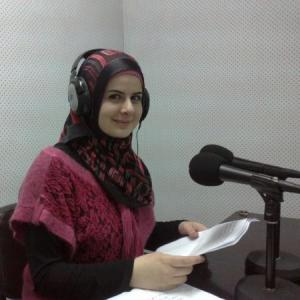IJNet's parent organization, ICFJ, partnered with the Facebook Journalism Project on its Reporting on Refugee Communities Amidst a Pandemic Program. This article is the third in a three-part series highlighting reporting produced by program participants. Read earlier articles about reporting initiatives in Egypt and Morocco, and reporting projects across the Middle East and North Africa.
Journalists in the Middle East and North Africa (MENA) have produced impactful reporting on refugees during the pandemic. Participants in an ICFJ-Facebook Journalist Project program worked closely with mentors to develop and report stories on issues such as the increased sexual violence against women refugees in Egypt, international funding for COVID-19 in Yemen, early marriage of Syrian refugees in Lebanon and more.
The reporting efforts, published in media outlets across the MENA region, showcase the importance of hard-hitting journalism about an under-reported issue. Before they set out to produce their stories, the journalists received intensive training on how to report on refugees responsibly and effectively, especially as COVID-19 swept the world.
Experts trained the journalists on what’s happening on the ground in refugee camps during the pandemic. The journalists learned about access to healthcare, health education and freedom of movement, and how the coronavirus pandemic has impacted existing resources.
The journalists received training on storytelling techniques and best practices regarding crowdsourcing and information verification. They also learned how to engage refugees in the reporting process. Program mentors pointed them to tools and resources that journalists with limited access can use to produce credible stories about issues affecting people in refugee camps. The online course included an in-depth training on health and safety through which participants learned how they can keep themselves and their reporting subjects safe while carrying out their work.
[Read more: Tips and resources for covering issues related to Israel and Palestine]
At the end of the course, participants received grants to produce their stories, in addition to one-on-one mentorship and training.
Mentors helped journalists structure their stories and find new angles for reporting on the refugee crisis. Egyptian journalist Shehata El-sayed noted how his mentor provided logistical assistance and guidance that helped him to choose the angle of his story, and that participation in the program helped him to move forward with his investigation. Through the experience, El-sayed was able to shed light on refugee communities whose cases needed media coverage.
Through training and mentorship, participants also learned new tools and techniques for interviewing, photographing and more. Journalist Mohamed Balti from Tunisia said that he learned how to photograph interview subjects, and that he developed skills in mobile journalism, as well as refugee reporting. He ultimately produced a video report for Radio Tunisienne about one refugee’s experience successfully integrating into the local community.
Salah Eddine Lemaizi, a journalist from Morocco, added that the most important thing he learned in the training was how to conduct interviews, which proved helpful as he reported on irregular migrants in Casablanca.
[Read more: Caring for yourself while covering distressing topics]
The training included both journalists who had experience reporting on refugees, in addition to those new to the beat. Although Iraqi journalist and filmmaker Farah Adnan has reported on migration and refugees in the past, she found the guidance on how to define the primary steps for reporting at all stages in the process valuable, including before implementation, during work and after publication. She put this knowledge to work in a 30-minute investigative podcast published by Raseef22. Adnan noted that she plans to carry out more reporting on refugee-related issues in the future.
Meanwhile, this was the first time Libyan journalist Ibtisam Agfer reported on refugees. She found that her reporting can influence important change, as she learned new skills and knowledge to further this effort. Most valuable for Agfer was understanding how efficient virtual reporting can be; reporters can still produce high-quality, reliable stories without traveling to refugee camps or interviewing in-person, especially during the pandemic.
Added Yemeni journalist Rania Farhan of her experience learning about reporting on refugees: “It was a unique and amazing opportunity to address the refugee crisis.” Farhan produced a report that was published by Yemeni news channel, Belqees TV.
Sarah Abdallah is a Ph.D. student in linguistics and communication, with degrees in law, political science and linguistic engineering. She is the IJNet Arabic Translator, and a reporter with l'Orient Le Jour.
This article was originally published by our Arabic site. It was translated to English by Sarah Abdallah.
Main image CC-licensed by Unsplash via Phil Botha.


